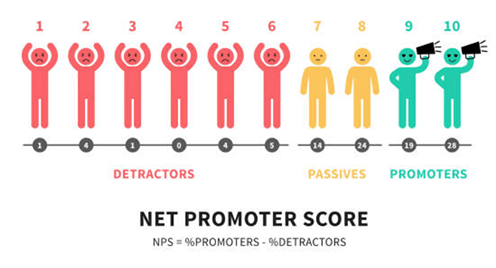Paying attention to whatever customers say about your product or service is one of the secrets to a successful business. No matter how you feel about a customer’s criticism, there is no denying the value it can bring. Knowing their customer feedback can help improve various aspects of your business, from marketing strategies, and product development, to customer service.
Every customer’s feedback is valuable, regardless of its nature. They may come from different channels, such as feature requests and customer inquiries. However, feedback alone is not enough to experience better outcomes for your business. Ideally, a data-driven approach to gathering feedback is a proven technique for creating valuable experiences for your customers.
If you are running a business, there are different ways to obtain customer feedback besides the traditional options you are aware of. Here are the various forms of customer feedback to improve customer satisfaction:
NPS responses
The net promoter score (NPS) is a popular way to gauge customer loyalty and satisfaction. An NPS survey often includes questions related to customer experience or the willingness of a customer to recommend the company to their families and friends. The customer will respond using a 10-point rating scale.
Based on their rating, the NPS will classify the customers into three categories: promoters, passives, and detractors.
- Promoters are the most loyal customers and are likely to speak well about the product to others.
- Passives are those who settle with a neutral response. They are neither loyal nor likely to churn.
- Detractors are customers who will likely say negative things about your brand. They are usually the most urgent customer a company needs to deal with.
Using a net promoter score solution is a great way to collect feedback that will make the customer feel heard. It allows you to systemize the collection, workflow, and ability to respond to customer’s feedback. It will be easier to find ways to increase loyalty, customer satisfaction, and retention.
Sales objections
Another type of feedback that plays a vital role for any business is sales objections. Although many companies don’t specifically ask them, knowing why a customer did not buy your product or service can help improve your messaging and sales process.
Sales objections also serve as dealbreakers when a potential customer tells you that they would like to buy your product, but a factor hinders them from making a purchase. The typical sales objections vary depending on pricing issues, product features, and customer demand.
But if your company has been receiving plenty of dealbreakers or sales objections, it might be time to consider making changes or building a new feature for your product or service. Keep in mind that every sale objection is a valid reason for no sale. But not all objections require addressing.
The best way to monitor these objections is to keep a list. Once you find patterns, it will be easier to find ways to prevent losing customers.
Customer surveys
Customer surveys are one of the most popular types of obtaining customer feedback. It serves as a regular feedback request which you can conduct once or twice a year, depending on the business.
Surveying customers is one of the obvious ways to gather feedback. You can use this if you want to identify a customer’s overall satisfaction with your service or product.
A traditional option for conducting surveys is to hand out survey forms. However using paper-based surveys requires too much work, and respondents may not feel encouraged to provide honest and accurate answers. Applying last-minute changes is not possible, mainly if you have already distributed the survey.
The best way to maximize the benefit of a customer survey is to use an online survey tool. Publishing a survey online allows you to format questions, even if the survey is currently being distributed. To obtain constructive responses from your customers, make sure to ask the right questions and encourage them to discuss their answers.
Churn reasons
Receiving a churn reason from a customer means they decided to stop using your service or product. It has a few similarities with sales objections, except that they are already your existing customers. Lack of engagement and competition are the common reasons customers abandon a brand.
It is also essential to know why a customer decided to back out. Whatever information you will obtain will prevent your business from losing more customers in the future. Collecting this type of feedback will also eliminate guesswork. This way, you will know the specific areas for improvement.
Companies should treat customer feedback as a gift. It helps improve your business and provides more value to your brand. Acquiring a wide range of feedback will help you apply necessary changes to your service or product to increase your customer base and sales.



